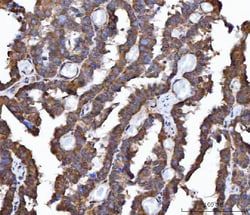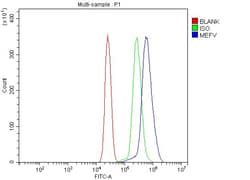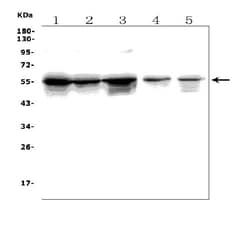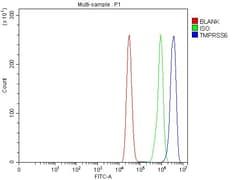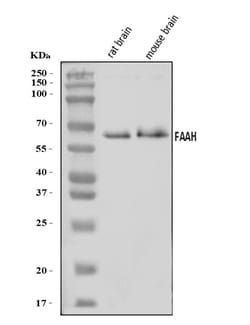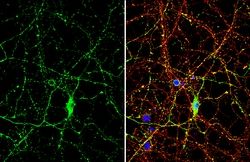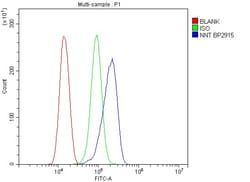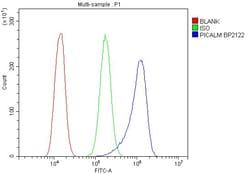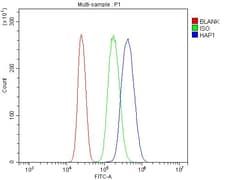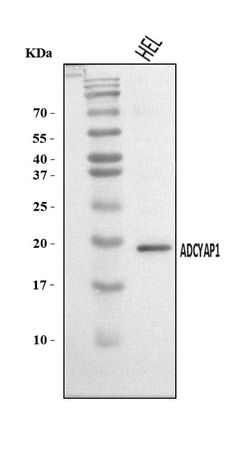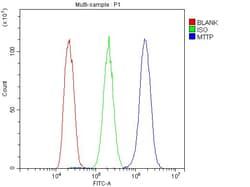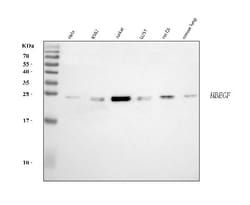HAP1 Polyclonal Antibody, Invitrogen™
Manufacturer: Thermo Scientific
Select a Size
| Pack Size | SKU | Availability | Price |
|---|---|---|---|
| Each of 1 | PIPA5143859-Each-of-1 | In Stock | ₹ 35,422.00 |
PIPA5143859 - Each of 1
In Stock
Quantity
1
Base Price: ₹ 35,422.00
GST (18%): ₹ 6,375.96
Total Price: ₹ 41,797.96
Antigen
HAP1
Classification
Polyclonal
Conjugate
Unconjugated
Gene
HAP1
Gene Alias
Hap1; HAP-1; HAP-1 antibody; HAP1-A; HAP1-B; HAP2; hHLP1; HIP5; HLP; HLP1; huntingtin associated protein 1; huntingtin-associated protein 1; huntingtin-associated protein 2; neuroan 1
Host Species
Rabbit
Purification Method
Antigen affinity chromatography
Regulatory Status
RUO
Gene ID (Entrez)
15114, 29430, 9001
Content And Storage
Store at 4°C short term. For long term storage, store at -20°C, avoiding freeze/thaw cycles.
Isotype
IgG
Applications
ELISA, Flow Cytometry, Immunocytochemistry, Western Blot
Concentration
500 μg/mL
Formulation
PBS with 4MG trehalose and no preservative
Gene Accession No.
O35668, P54256, P54257
Gene Symbols
HAP1
Immunogen
E.coli-derived human HAP1 recombinant protein (Position: M1-R671).
Quantity
100 μg
Primary or Secondary
Primary
Target Species
Human, Mouse, Rat
Form
Lyophilized
Description
- Adding 0.2 mL of distilled water will yield a concentration of 500 μg/mL
- Huntington's disease (HD), a neurodegenerative disorder characterized by loss of striatal neurons, is caused by an expansion of a polyglutamine tract in the HD protein huntingtin
- HAP1 was initially identified through a two-hybrid library screening; the binding of HAP1 to huntingtin correlated with the expansion of the polyglutamine tract
- HAP1 also interacts with two cytoskeletal proteins (dynactin and pericentriolar autoantigen protein 1), suggesting that HAP1 may play a role in vesicular trafficking or organelle transport
- HAP1 is also involved with the huntingtin-enhanced BDNF transport along the cellular microtubles
- Attenuation of this process led to the loss of neurotrophic support and neuronal toxicity, which suggests that loss of this function might contribute to pathogenesis
- Several alternatively spliced isoforms have been described for HAP1.
